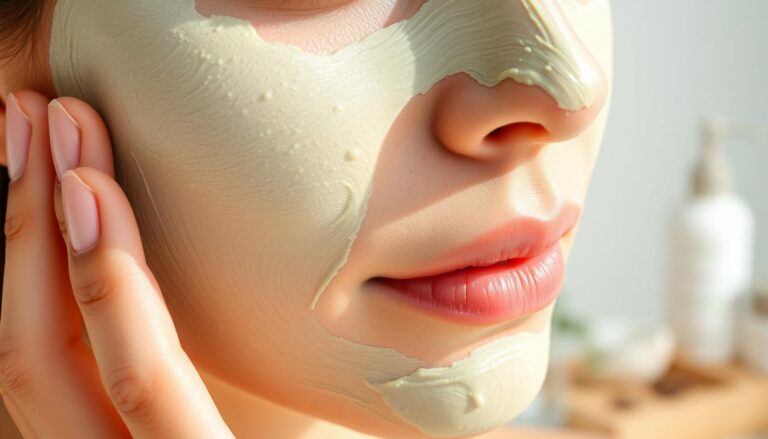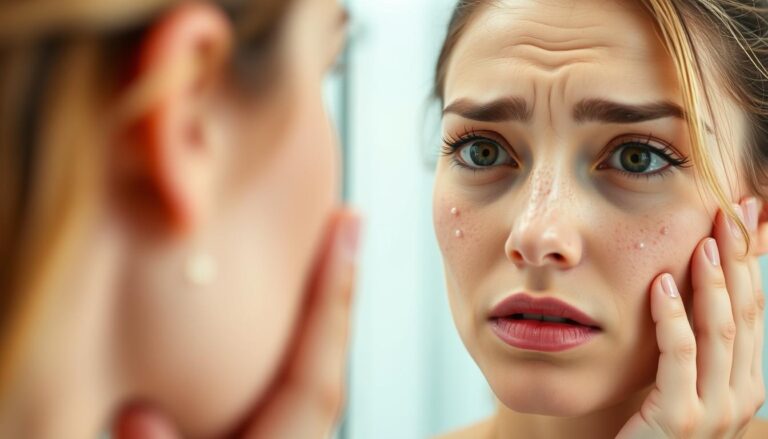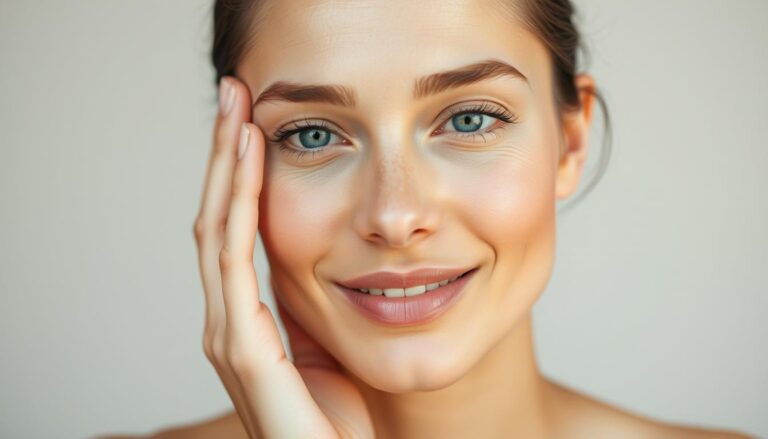At Glowskinhub.com, we believe beauty isn’t just a look—it’s a feeling
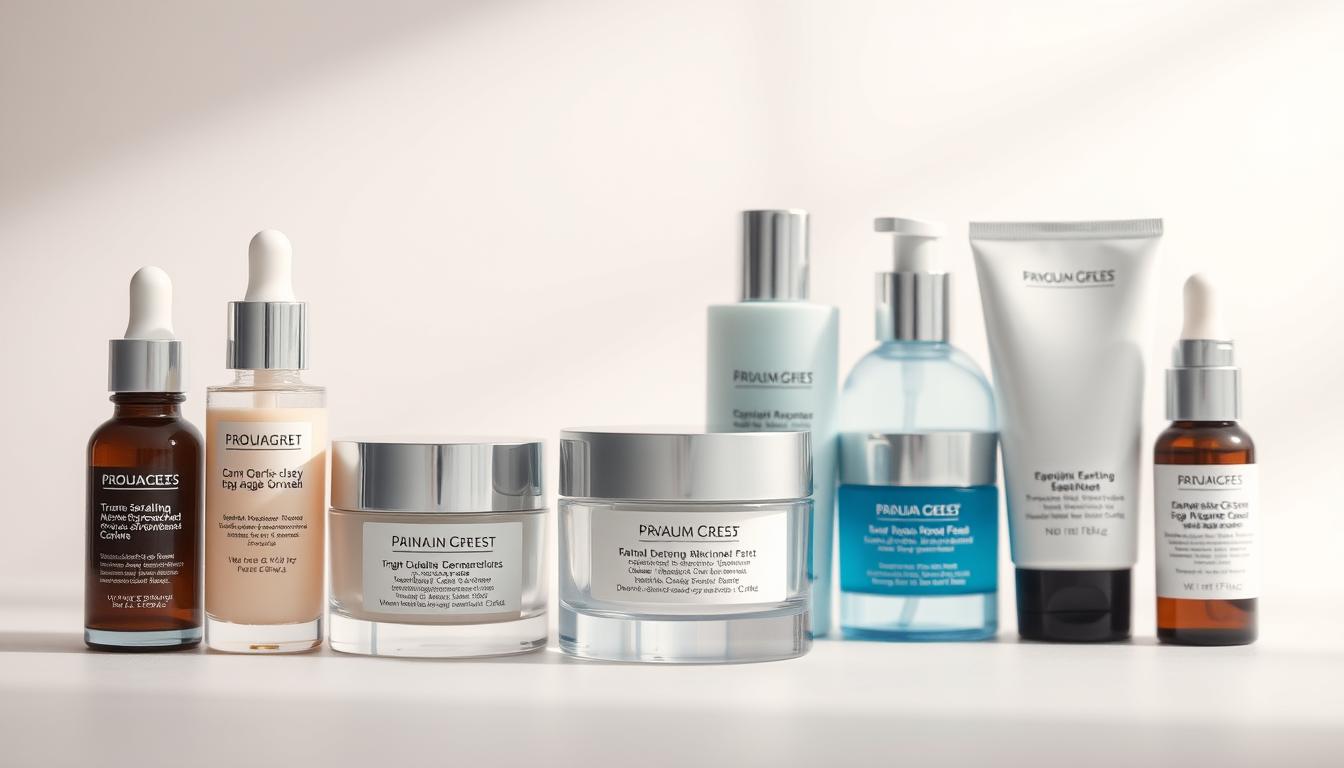
Best anti-ageing ingredients dermatologists recommend
As we age, our Skin undergoes significant changes that can lead to the appearance of fine lines, wrinkles, and age spots. Effective anti-ageing skincare is crucial to maintaining a youthful appearance.
With numerous products available in the market, selecting the right skincare products can be overwhelming. Dermatologists, however, recommend certain anti-ageing ingredients that have proven to be effective in combating signs of ageing.
This article will explore the best anti-ageing ingredients that dermatologists suggest incorporating into your skincare routine for optimal results.
Key Takeaways
- Understanding the importance of dermatologist-recommended skincare products
- Identifying effective anti-ageing ingredients for your skincare routine
- Learning how to choose the right products for your Skin type
- Discovering the benefits of using dermatologist-tested skincare products
- Exploring the role of key ingredients in anti-ageing skincare
Understanding Skin Ageing: What Happens to Our Skin Over Time
Skin ageing is a complex process influenced by a combination of intrinsic and extrinsic factors. As we get older, our Skin undergoes various changes that can lead to the visible signs of ageing, such as wrinkles, fine lines, and age spots.
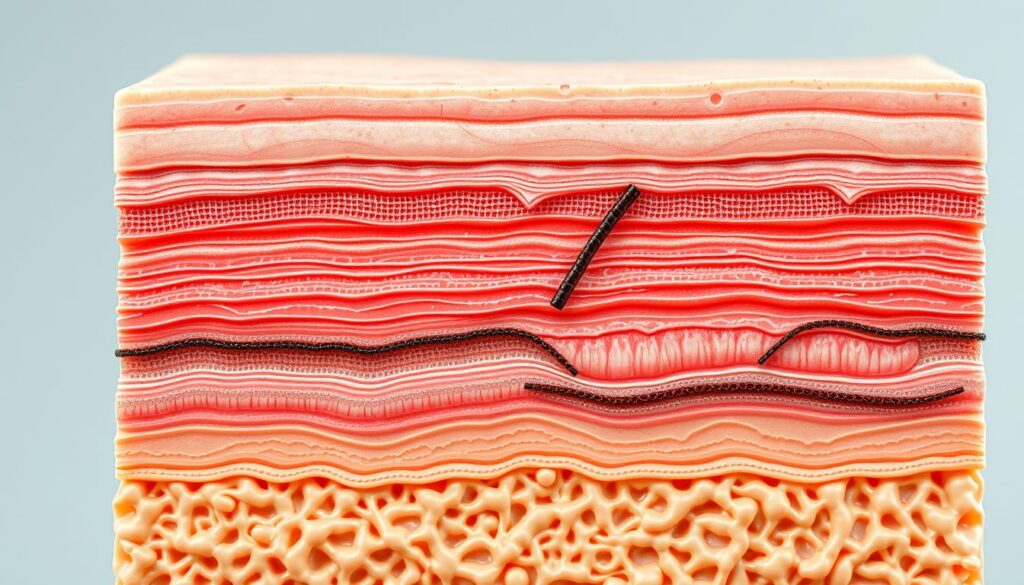
Intrinsic vs. Extrinsic Ageing Factors
Intrinsic ageing refers to the natural ageing process that occurs over time, influenced by genetics and hormonal changes. Extrinsic ageing, on the other hand, is caused by external factors such as UV exposure, smoking, and environmental stressors. Understanding the difference between these two types of ageing is crucial for developing effective skincare strategies.
Intrinsic ageing is inevitable, but its effects can be exacerbated or mitigated by extrinsic factors. For instance, UV exposure can significantly accelerate Skin ageing, leading to premature wrinkles and age spots.
Common Signs of Ageing and Their Causes
Common signs of ageing include wrinkles, fine lines, loss of Skin elasticity, and hyperpigmentation. These changes are caused by a combination of intrinsic and extrinsic factors, including reduced collagen production, decreased Skin hydration, and damage from UV exposure.
For individuals with oily Skin, ageing can manifest differently, with concerns such as enlarged pores and a dull complexion. Effective oily Skin care tips include using non-comedogenic products, exfoliating regularly, and maintaining a consistent skincare routine.
How Ageing Affects Different Skin Types
Ageing affects different Skin types in various ways. While dry Skin may become thinner and more fragile, oily Skin can experience a decrease in sebum production over time, potentially leading to a combination Skin type. Understanding how ageing impacts your specific Skin type is key to addressing its unique concerns.
By recognizing the factors that contribute to Skin ageing and adapting skincare routines accordingly, individuals can better mitigate its visible effects and maintain healthier, more youthful-looking Skin.
Why Ingredient Selection Matters in Anti-Ageing Skincare
Ingredient selection plays a pivotal role in determining the efficacy of anti-ageing skincare products. With the vast array of products available, understanding what works is crucial.
The Science Behind Effective Anti-Ageing Formulations
Effective anti-ageing formulations are backed by science. Retinoids, for instance, are derivatives of vitamin A that help in cell turnover and collagen production. Antioxidants like vitamin C and E neutralize free radicals, protecting the Skin from damage.
How to Read Skincare Labels for Maximum Benefits
Reading skincare labels is essential to ensure you’re getting the right product. Look for products with clinically proven ingredients. Be wary of products with harsh chemicals or irritants.
| Ingredient | Benefit |
|---|---|
| Retinoids | Stimulates collagen production, improves Skin texture |
| Vitamin C | Brightens, antioxidant properties |
| Niacinamide | Improves Skin elasticity, reduces inflammation |
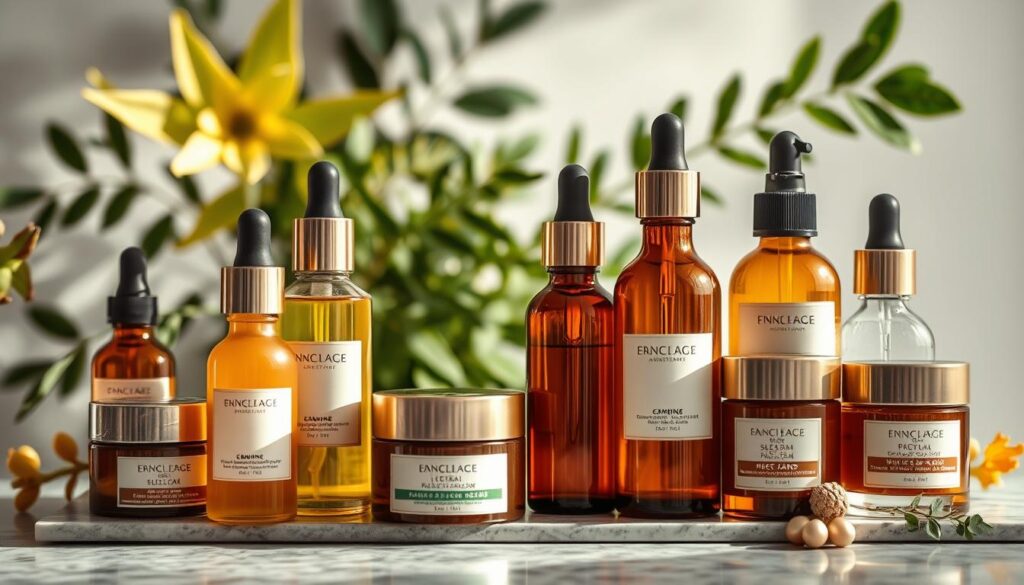
Avoiding Harmful Ingredients and Potential Irritants
Some ingredients can do more harm than good. Parabens and sulfates are known to irritate the Skin. Opt for products labeled ‘non-comedogenic’ or ‘Fragrance-free’ to minimize risks.
Retinoids: The Gold Standard in Anti-Ageing
When it comes to combating signs of ageing, retinoids stand out as a gold standard in the skincare world. Derived from vitamin A, retinoids are celebrated for their ability to promote cell turnover, stimulate collagen production, and improve Skin texture.
Different Types of Retinoids and Their Strengths
Retinoids come in various forms, each with its own strengths. Retinol, for instance, is a gentler, over-the-counter (OTC) version, while tretinoin is a more potent, prescription-only retinoid. Other forms include retinaldehyde and adapalene, each offering different levels of efficacy and suitability for different Skin types.
| Retinoid Type | Strength | Skin Type Suitability |
|---|---|---|
| Retinol | Mild | Sensitive Skin, beginners |
| Tretinoin | Strong | Experienced users, severe ageing signs |
| Retinaldehyde | Moderate | General anti-ageing, moderate Skin concerns |
| Adapalene | Mild to Moderate | Acne-prone Skin, gentle anti-ageing |
How to Incorporate Retinoids into Your Routine
To effectively incorporate retinoids into your skincare routine, start with a lower concentration to allow your Skin to adjust. Gradually increase the strength as your Skin becomes more tolerant. It’s also crucial to use retinoids at night, as they can make your Skin more sensitive to sunlight. Always follow up with a broad-spectrum sunscreen during the day.
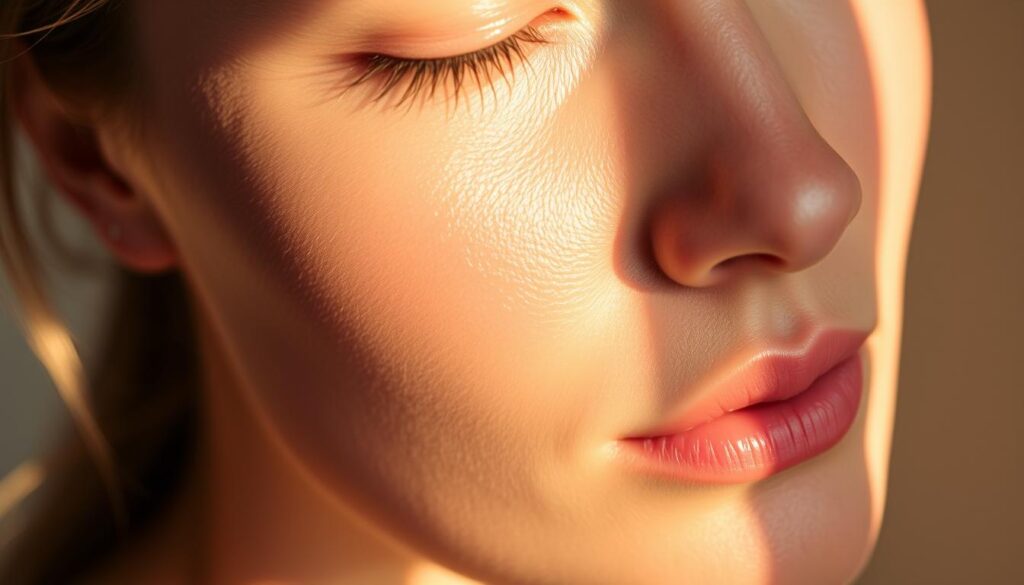
Potential Side Effects and How to Minimise Them
While retinoids are highly effective, they can cause side effects such as redness, irritation, and dryness. To minimise these effects, start with a lower concentration and gradually increase. Moisturising regularly and using a gentle cleanser can also help mitigate irritation.
Special Considerations for Oily Skin
For individuals with oily Skin, it’s essential to balance the use of retinoids with products that control oil production without drying out the Skin. Using a lightweight, oil-free moisturiser and a gentle exfoliant can help maintain this balance. Niacinamide is also beneficial as it can help reduce inflammation and improve Skin elasticity.
Antioxidants: Your Skin’s Defence System
The Skin’s defence system relies heavily on antioxidants to combat free radicals and maintain a youthful appearance. Antioxidants are substances that neutralize free radicals, which are unstable molecules that can cause oxidative stress, leading to premature ageing.
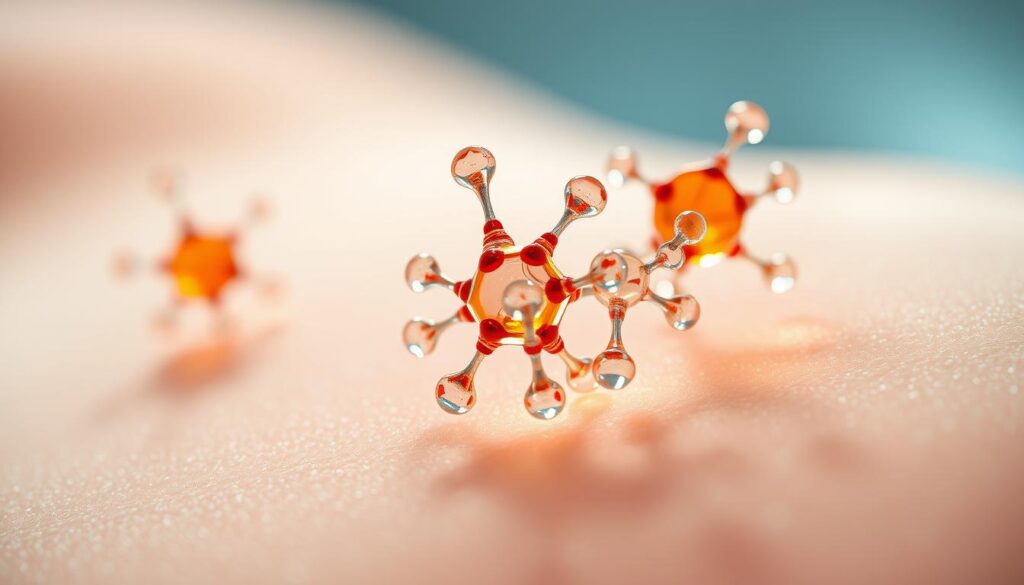
Antioxidants play a vital role in protecting the Skin from environmental stressors, such as pollution and UV damage. They help to prevent damage to Skin cells, reduce inflammation, and promote collagen production.
Vitamin C: Brightening and Collagen-Boosting Properties
Vitamin C is a powerful antioxidant that brightens the Skin, boosts collagen production, and improves Skin elasticity. It is particularly effective in reducing the appearance of fine lines and wrinkles.
Vitamin E and Ferulic Acid: Perfect Companions
Vitamin E and ferulic acid are often combined with vitamin C to enhance its effectiveness. Vitamin E provides additional antioxidant benefits, while ferulic acid helps to stabilize vitamin C, ensuring its potency.
Niacinamide: The Multi-Tasking Powerhouse for Oily Skin
Niacinamide is a versatile antioxidant that is particularly beneficial for oily Skin. It helps to improve Skin elasticity, reduce inflammation, and minimize the appearance of pores.
Resveratrol, Green Tea, and Other Plant-Based Antioxidants
Resveratrol, found in grapes, and green tea extract are examples of plant-based antioxidants that have gained popularity in skincare. They offer anti-inflammatory and antioxidant benefits, helping to protect the Skin from environmental stressors.
By incorporating antioxidants into your skincare routine, you can significantly enhance your Skin’s defence system, resulting in a more youthful and radiant appearance.
Exfoliating Acids: Revealing Fresher, Younger Skin
Exfoliating acids are a crucial component in any anti-ageing skincare routine. They help in removing dead Skin cells, unclogging pores, and revealing smoother, fresher Skin. Among these, Alpha Hydroxy Acids (AHAs), Beta Hydroxy Acids (BHAs), and Polyhydroxy Acids (PHAs) are the most commonly used.
Alpha Hydroxy Acids (AHAs) for Surface Renewal
AHAs, such as glycolic acid and lactic acid, are effective for surface renewal. They work by breaking down dead Skin cells, thereby improving Skin texture and reducing the appearance of fine lines.
Beta Hydroxy Acids (BHAs) for Deep Pore Cleansing
BHAs, particularly salicylic acid, are known for their ability to penetrate deep into pores, making them ideal for oily Skin treatment and acne-prone Skin. They help in unclogging pores and reducing inflammation.
Polyhydroxy Acids (PHAs) for Sensitive Skin
PHAs are gentler than AHAs and BHAs, making them suitable for sensitive Skin. They provide similar benefits without the irritation often associated with other exfoliating acids.
Exfoliation Strategies for Oily and Congested Skin
For oily and congested Skin, a combination of AHAs and BHAs can be particularly effective. Start with a lower concentration to avoid irritation and gradually increase as your Skin becomes more tolerant.
| Exfoliating Acid | Primary Use | Skin Type |
|---|---|---|
| AHAs | Surface renewal, fine lines | Normal to dry Skin |
| BHAs | Deep pore cleansing, acne | Oily, acne-prone Skin |
| PHAs | Gentle exfoliation | Sensitive Skin |

By understanding and utilizing these exfoliating acids, individuals can create an effective skincare routine tailored to their specific Skin concerns.
Peptides and Growth Factors: The Building Blocks for Youthful Skin
Peptides and growth factors have emerged as key players in the quest for youthful, radiant Skin, offering a promising solution for those looking to combat the visible signs of ageing.
These ingredients work at a cellular level to stimulate collagen production, improve Skin elasticity, and enhance overall Skin texture. By understanding how peptides and growth factors function, individuals can make informed decisions about their skincare routine.
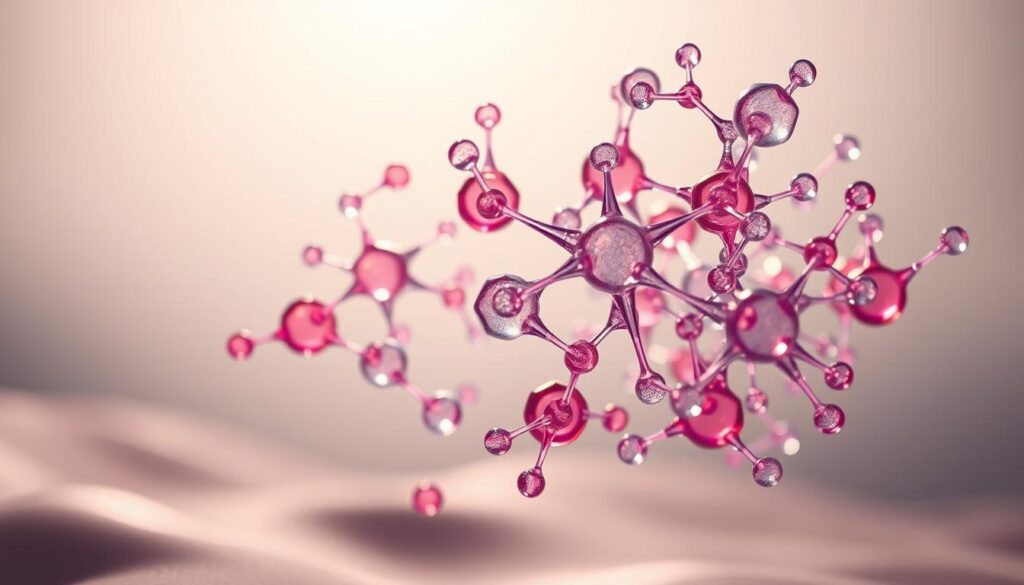
How Peptides Work to Stimulate Collagen Production
Peptides are short chains of amino acids that serve as the building blocks of proteins, including collagen and elastin, which are crucial for maintaining Skin’s firmness and elasticity. When applied topically, peptides can penetrate the Skin, stimulating collagen production and improving Skin texture.
The mechanism by which peptides stimulate collagen production involves signalling pathways that trigger the synthesis of new collagen. This process helps to reduce the appearance of fine lines and wrinkles, giving the Skin a smoother, more youthful appearance.
Different Types of Peptides and Their Benefits
There are several types of peptides used in skincare, each with distinct benefits. Some peptides are designed to target specific concerns, such as wrinkles or loss of firmness, while others have broader anti-ageing effects.
| Type of Peptide | Benefits |
|---|---|
| Signal Peptides | Stimulate collagen production, improving Skin texture and reducing wrinkles. |
| Carrier Peptides | Help in the transportation of trace elements like copper, which is essential for collagen production. |
| Enzyme-Inhibiting Peptides | Work by inhibiting the enzymes that break down collagen and elastin, preserving Skin’s elasticity. |
Growth Factors: The Next Generation of Anti-Ageing
Growth factors represent a cutting-edge approach in anti-ageing skincare. These proteins are involved in cell signalling pathways that regulate various cellular processes, including proliferation, differentiation, and survival.
By applying growth factors topically, individuals can potentially enhance Skin renewal, improve Skin texture, and reduce the appearance of ageing signs. Growth factors can be derived from various sources, including human cells, plants, and biotechnology.
In conclusion, peptides and growth factors offer a powerful combination for addressing various signs of ageing. By understanding their roles and benefits, individuals can harness their potential to achieve more youthful, radiant Skin.
Best Anti-Ageing Ingredients Dermatologists Recommend for Specific Concerns
For targeted anti-ageing results, dermatologists suggest using ingredients tailored to specific Skin concerns. Different Skin issues require different approaches, and understanding the most effective ingredients for your particular concerns can make a significant difference in your skincare routine.
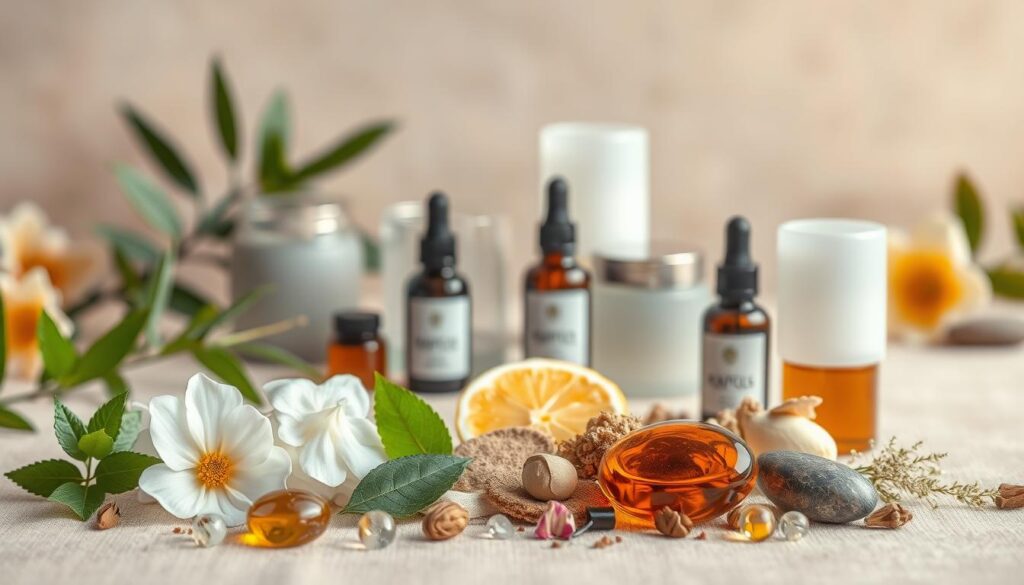
For Fine Lines and Wrinkles
When it comes to addressing fine lines and wrinkles, retinoids are often considered the gold standard. Derived from vitamin A, retinoids stimulate collagen production, promote cell turnover, and help reduce the appearance of wrinkles. Peptides are another effective ingredient, as they signal the Skin to produce more collagen, improving Skin elasticity and reducing wrinkle depth.
For Hyperpigmentation and Age Spots
For hyperpigmentation and age spots, dermatologists frequently recommend antioxidants like Vitamin C. Vitamin C brightens the Skin and inhibits melanin production, helping to fade age spots and hyperpigmentation. Niacinamide is also beneficial as it improves Skin hyperpigmentation and strengthens the Skin barrier.
For Loss of Firmness and Elasticity
To combat loss of firmness and elasticity, peptides and growth factors are highly recommended. Peptides stimulate collagen production, which helps to firm the Skin, while growth factors promote the regeneration of Skin cells, enhancing Skin elasticity and firmness.
For Dullness and Uneven Texture
Exfoliating acids such as alpha hydroxy acids (AHAs) and beta hydroxy acids (BHAs) are excellent for addressing dullness and uneven texture. AHAs help remove dead Skin cells, revealing brighter Skin, while BHAs penetrate deeper into pores, clearing out debris that can cause dullness.
For Oily Skin with Anti-Ageing Concerns
For oily Skin, niacinamide is particularly beneficial as it not only addresses anti-ageing concerns but also helps regulate sebum production and improve Skin’s barrier function. Using a lightweight, oil-free moisturizer with anti-ageing ingredients can also help maintain hydration without exacerbating oiliness.
By incorporating these dermatologist-recommended ingredients into your skincare routine, you can effectively address your specific Skin concerns and achieve a more youthful, radiant complexion.
Creating an Effective Anti-Ageing Routine for Different Skin Types
An effective anti-ageing skincare routine can make a significant difference in the health and appearance of your Skin. By understanding your Skin type and concerns, you can tailor a routine that addresses your specific needs.
Morning Routine Essentials
Starting your day with the right skincare products can help protect your Skin from environmental stressors and promote a healthy glow. Begin with a gentle cleanser, followed by a toner to balance your Skin’s pH. Apply a Serum rich in antioxidants, such as vitamin C, to combat free radicals. Finish with a broad-spectrum sunscreen with at least SPF 30.
Evening Routine Recommendations
In the evening, focus on repair and nourishment. Cleanse your Skin thoroughly to remove dirt and makeup. Use a product containing exfoliating acids like AHAs or BHAs 1-2 times a week to promote cell turnover. Apply a treatment product with retinoids or peptides to stimulate collagen production and reduce fine lines. Moisturize to lock in previous steps and support Skin hydration.
Special Considerations for Oily and Combination Skin
For oily and combination Skin, it’s crucial to balance anti-ageing benefits with oil control. Use lightweight, oil-free products that won’t clog pores. Consider products containing niacinamide to regulate sebum production and improve Skin elasticity.
Layering Products for Maximum Efficacy
Layering skincare products correctly can enhance their effectiveness. Start with the lightest consistency and gradually move to thicker products. Allow each layer to absorb fully before applying the next.
Adjusting Your Routine by Age: 30s, 40s, 50s and Beyond
As you age, your Skin’s needs change. In your 30s, focus on prevention with antioxidants and sunscreen. In your 40s, incorporate retinoids and peptides to address emerging signs of ageing. In your 50s and beyond, emphasize hydration and repair with products rich in hyaluronic acid and growth factors.
| Age Group | Primary Concerns | Key Ingredients |
|---|---|---|
| 30s | Prevention, fine lines | Antioxidants, sunscreen |
| 40s | Deep wrinkles, loss of firmness | Retinoids, peptides |
| 50s and beyond | Hydration, Skin elasticity | Hyaluronic acid, growth factors |
By tailoring your anti-ageing routine to your Skin type and age, you can achieve more effective and visible results. Consistency is key, so stick to your routine and be patient.
Conclusion: Consistency and Prevention in Anti-Ageing Skincare
Effective anti-ageing skincare is not just about using the right products, but also about maintaining consistency in your routine. By incorporating the recommended ingredients, such as retinoids, antioxidants, and exfoliating acids, into your daily regimen, you can achieve significant improvements in your Skin’s appearance.
Prevention is key in anti-ageing skincare. Starting early and being proactive can help prevent signs of ageing, such as fine lines, wrinkles, and hyperpigmentation. A well-planned anti-ageing skincare routine can help you achieve a smoother, brighter, and more youthful complexion.
By understanding your Skin type and concerns, and using products that address your specific needs, you can create an effective anti-ageing skincare routine that delivers results. With anti-ageing skincare, patience and persistence are essential. Stick to your routine, and you will be on your way to healthier, more radiant Skin.

